MBA Course

Image 1- Inside View of the SAITM Campus Building
The full form of MBA is Master of Business Administration. The MBA Course is a postgraduate-level program emphasizing advanced business concepts, leadership skills, and strategic thinking.
It prepares individuals for diverse career opportunities in management, consulting, entrepreneurship, and leadership roles. It also across various industries, offering valuable networking opportunities and practical learning experiences.
Some of the most opted courses in India and St. Andrews college or different Engineering college or Management colleges are as follows:-
- Btech
- Btech CSE
- Btech ETCE
- MTech
- BCA
- BBA
- MBA
- MCA
- DPharma – St. Andrews College of Pharmacy
- BPharma – St. Andrews College of Pharmacy
- BArch – St. Andrews College of Architecture
MBA Course Details
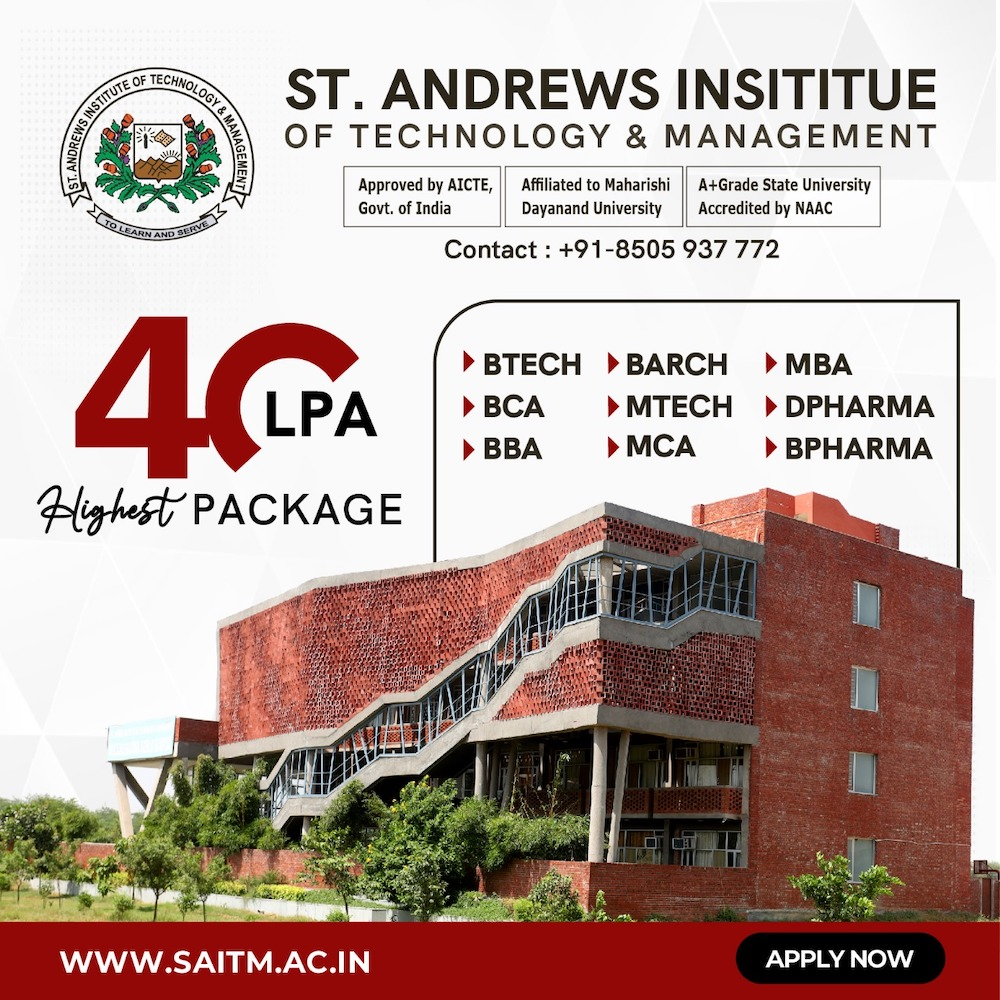
Image 2- Detail about Different Courses in SAITM Gurugram
The MBA course is a postgraduate-level degree designed to provide one of the best skills and knowledge needed to pursue leadership and managerial positions in the various fields of business.
Overview about MBA course details
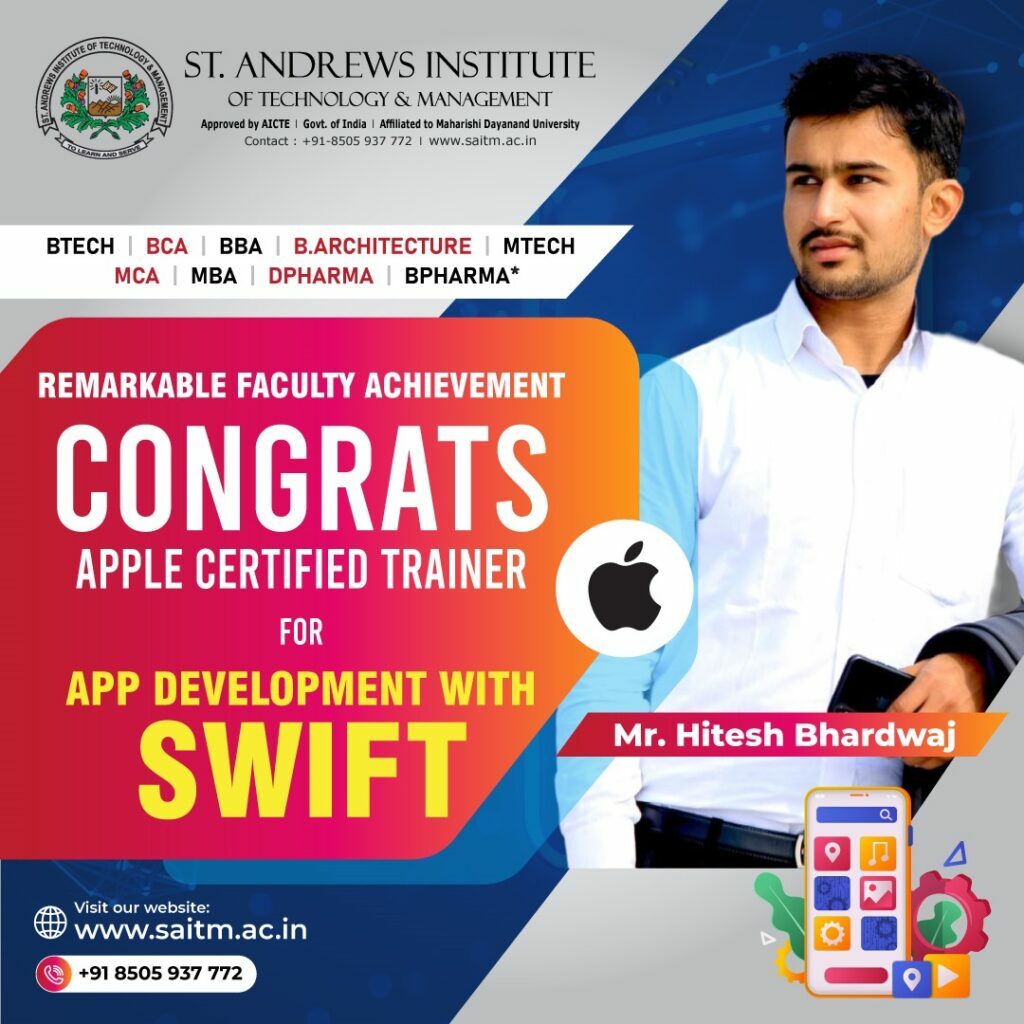
Image 3 – SAITM Faculty Achievement
Core Subjects
MBA course covers core business subjects like:
- Accounting
- Finance
- Marketing
- Operations Management
- Organizational Behavior
- Strategic Management
- Economics
Electives
Many programs for MBA offer elective courses that allow students to tailor their education to their career goals or interests. Elective options might include:
- Entrepreneurship
- International Business
- Supply Chain Management
- Human Resource Management
- Information Technology Management
- Business Analytics
- Sustainability
Specializations
Some courses for MBA offer specializations or concentrations in the specific areas, as follows:
- Finance
- Marketing
- Healthcare Management
- Consulting
- Real Estate
- Sustainable Business
Experiential Learning
Many programs for MBA incorporate experiential learning opportunities like:
- Internships
- Consulting projects
- Case competitions
- Simulations
- Study abroad programs
Capstone Projects
In MBA courses, students are required to undertake a capstone project. This project often entails tackling a real-world business issue or formulating a detailed business plan.
Duration
The duration of an MBA (Master of Business Administration) course typically varies. Typically, for full-time attendees, the duration ranges from one to two years.
Part-time and executive MBA courses may have different structures and durations.
Admissions Requirements
Admissions criteria for MBA courses often include with a minimum of specific requirements as follows:
- Undergraduate degree from an accredited institution
- Work experience (requirements vary)
- GMAT or GRE scores
- Letters of recommendation
- Personal statement or essay
- Interview (in some cases)
Career Opportunities
An MBA course can open doors to a wide range of career opportunities in various industries and sectors, including:
- Consulting
- Investment Banking
- Marketing
- Entrepreneurship
- Corporate Strategy
- Operations Management
- Nonprofit Management
Networking Opportunities
The MBA courses often provide extensive networking opportunities through alumni networks, career services, guest speakers, and industry events.
Global Perspective
Many MBA courses stress the significance of having a global outlook in business. They provide opportunities for international study, global consulting projects, and exposure to diverse cultures and markets.
Master managerial skills for effective leadership
Mastering managerial skills is essential for effective leadership in any organization.
Here are some key areas in the training and development that can help individuals enhance their managerial skills:
Communication Skills
Effective communication is crucial for managers to convey expectations, provide feedback, resolve conflicts, and inspire teams.
Training in verbal, written, and nonverbal communication can improve clarity, empathy, and persuasion.

Image 4 – Communication Skills
Team Leadership
Managers need to cultivate a positive team culture, foster collaboration, and motivate team members toward common goals.
Training in team dynamics, conflict resolution, and motivational techniques can enhance leadership effectiveness.

Image 5 – Leading Teams is a Keys to Success
Decision-Making
Managers often face complex decisions that require critical thinking, problem-solving, and risk assessment.
Training in decision-making frameworks, data analysis, and strategic thinking can improve managerial judgment and outcomes.

Image 6- Strategies for Smart Decision-Making
Time Management
Effective managers prioritize tasks, delegate responsibilities, and manage their time efficiently to meet deadlines and achieve objectives.
Time management training can help managers enhance productivity, reduce stress, and maintain work-life balance.

Image 7 – Time Management
Emotional Intelligence
Managers who possess high emotional intelligence have the ability to understand and control their own emotions. Additionally, they have the ability to empathize with others and nurture strong relationships.
Training in self-awareness, self-regulation, social awareness, and relationship management can improve leadership effectiveness.
Conflict Resolution
Managers need to address conflicts constructively to maintain team cohesion and productivity.
Training in negotiation techniques, active listening, and conflict resolution strategies can help managers resolve disputes and build consensus.
Coaching and Development
Effective managers coach and develop their team members to unlock their full potential and foster professional growth.
Training in coaching skills, performance feedback, and talent development can enhance managerial effectiveness and employee engagement.

Image 8 – Fostering Growth Through Effective Coaching
Change Management
Managers often lead organizational change initiatives that require effective communication, stakeholder engagement, and resilience.
Training in change management principles, communication strategies, and conflict resolution can help managers navigate change successfully.
Ethical Leadership
Managers are required to exhibit integrity, fairness, and ethical behavior. This helps in establishing trust and credibility with their teams and stakeholders.
Training in ethical decision-making, corporate governance, and ethical leadership principles can promote ethical behavior and organizational integrity.
Continuous Learning
Effective managers prioritize lifelong learning and professional development. They aim to stay updated on industry trends, best practices, and emerging technologies.
Training in leadership development, management skills, and industry-specific knowledge can support continuous learning and career advancement.

Image 9 – Success Through Continuous Learning
Investing in training and development programs that target essential managerial skills can enhance individuals’ leadership effectiveness.
MBA Courses Eligibility Criteria
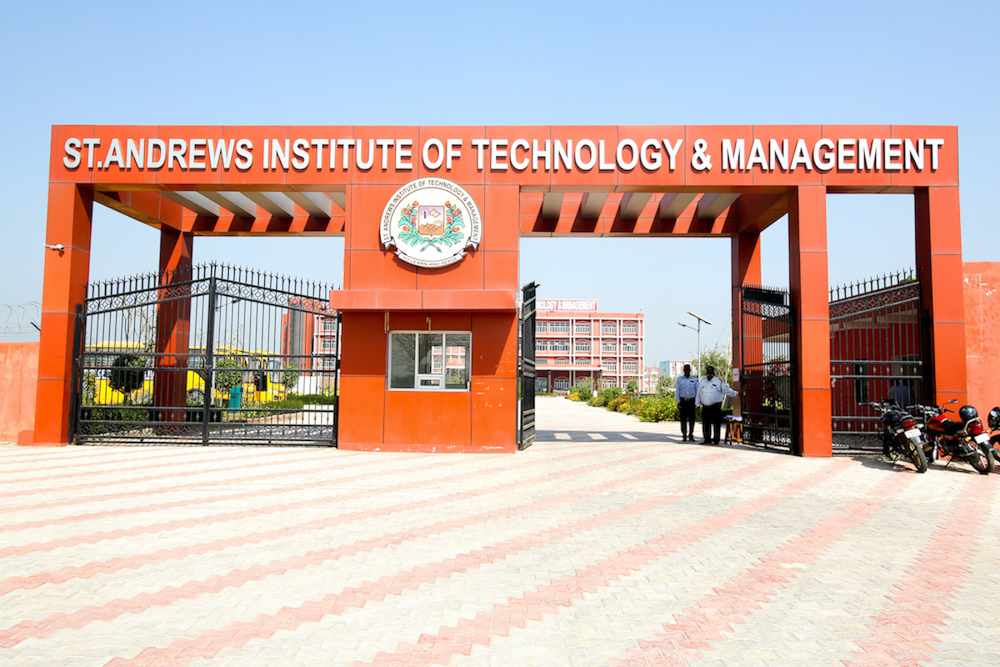
Image 10 – St. Andrews Institute of Technology and Management, Gurugram
Unlocking the MBA courses requires meeting certain eligibility criteria. Here are the essential requirements typically revealed by an MBA degree shown below:
| Eligibility Criteria | Details |
| Educational Qualification | Bachelor’s degree in any discipline from a recognized university |
| Minimum Percentage | Minimum 55% marks required |
| Work Experience | Some programs may require a minimum number of years of working experience, often ranging from 1 to 5 years |
| Entrance Exams | CAT (Common Admission Test), XAT (Xavier Aptitude Test), CMAT (Common Management Admission Test), MAT (Management Aptitude Test), IIFT Entrance Exam |
| Interview | Shortlisted candidates may need to appear for a personal interview as part of the selection process |
Educational Qualifications
Candidates must usually hold a bachelor’s degree from a recognized institution.
While some MBA courses welcome graduates from any discipline, others may stipulate a specific undergraduate major or coursework in business-related subjects.
Minimum Marks
Many MBA courses have a minimum 55% marks required for admission.
Entrance Exams

Image 11 – Entrance Exams for MBA Courses
In India, several government-conducted or government-recognized entrance exams provide pathways to MBA or equivalent management programs in various public and private institutions.
Here are some of the key government-related MBA entrance exams:
CAT (Common Admission Test): Although CAT is conducted by the Indian Institutes of Management (IIMs), which are autonomous bodies, they are considered public institutions supported by the Government of India. CAT scores are used for admission to IIMs and several other business schools across the country.
CMAT (Common Management Admission Test): Conducted by the National Testing Agency (NTA), a government organization, CMAT is a national level entrance examination for entry into management programs in over 1000 participating institutes across India.
MAT (Management Aptitude Test): While MAT is conducted by the All India Management Association (AIMA), it is approved by the Ministry of Human Resource Development (MHRD), Government of India, for MBA admissions.
XAT (Xavier Aptitude Test): Although XAT is conducted by XLRI Jamshedpur (a private institution), it is widely recognized and scores are accepted by various government and private institutions for MBA admissions.
IIFT Entrance Exam: This exam is specifically for admission into the Indian Institute of Foreign Trade (IIFT), a government of India founded institution, for its MBA (International Business) program.
It’s important to note that while some of these exams like CAT and CMAT are directly associated with government-supported institutions or conducted by government bodies, others like XAT and MAT, though not government-conducted, are recognized for admissions into programs at various government and private institutions.
Work Experience

Image 12 – Discussion about the Project
While it is not always mandatory, many MBA courses tend to prioritize candidates who have relevant work experience.
This experience commonly ranges from one to five years. Work experience requirements vary depending on the program’s focus and target audience.
Certain programs like executive MBA (EMBA) or part-time MBA courses are specifically tailored to meet the needs of mid-career professionals.
They may have specific requirements regarding the minimum number of years of work experience.
Letters of Recommendation
MBA courses frequently request letters of recommendation from academic or professional contacts. These letters should provide insights into the candidate’s qualifications, character, and potential for success in graduate studies.
Interviews
Some MBA courses may require candidates to participate in an admissions interview as one of the part application process.
The interview allows admissions committees to assess applicants interpersonal skills, communication abilities, and alignment with the program’s values and culture.

Image 13 – Navigating the Path to Interviews
Additional Requirements
Depending on the program, applicants may have to meet additional requirements beyond the standard application materials. These could include submitting a resume or CV, participating in group discussions or case studies, or completing pre-requisite courses in subjects like accounting, economics, or statistics.
Exploring Types of MBA Courses Available

Image 14 – SAITM Management Building
There are several types of MBA courses available, each tailored to meet the diverse needs and preferences of students and professionals.
Here’s a dive into the types of MBA courses:
| Type of MBA Program | Description |
| Full-Time MBA | Traditional two-year program offering a comprehensive curriculum and immersive experience. |
| Part-Time MBA | Designed for working professionals, offering flexibility with evening or weekend classes. |
| Executive MBA (EMBA) | Tailored for experienced professionals, typically offered on weekends or in intensive modules. |
| Online MBA | Delivered entirely online, offering flexibility for working professionals to balance work and study. |
| Dual MBA | Combines MBA studies with another specialized degree, such as JD/MBA (Law and Business) or MD/MBA (Medicine and Business). |
| Global MBA | Focuses on international business, often including opportunities for studying abroad or global residencies. |
| Specialized MBA | Concentrates on specific industries or sectors, such as Healthcare, Finance, or Technology. |
| Mini-MBA | Shorter, non-degree programs offering a condensed version of MBA curriculum for skill enhancement. |
Full-Time MBA Courses
Traditional full time MBA courses typically span two academic years. They are designed for those students who can commit to studying on a full time basis.
These programs offer a comprehensive curriculum, networking opportunities, internships, and extracurricular activities.
Full time MBA course students often have the opportunity to immerse themselves fully in the academic and social aspects of campus life.
Part-Time MBA Courses
Part-time MBA degrees are specifically tailored for working professionals who aim to pursue an MBA while maintaining their careers.
These programs offer flexibility in scheduling, allowing students to attend classes in the evenings, weekends, or online.
Part-time MBA students can balance their academic studies with work and personal commitments.
Executive MBA (EMBA)
Executive MBA degrees are specifically tailored for experienced professionals with significant managerial or leadership experience.
EMBA programs primarily focus on mid-career executives and senior managers who aim to enhance their leadership skills and advance in their careers while continuing full-time employment.
These programs often feature a condensed format, executive-level networking opportunities, and curriculum focused on advanced management concepts.
Online MBA
Online MBA Course offer the flexibility of remote learning, allowing students to complete coursework from anywhere with an internet connection.
These programs are well-suited for individuals who require flexibility due to work, family, or other commitments.
Online MBA Course often provide asynchronous coursework, interactive learning platforms, and opportunities for virtual collaboration with classmates and faculty.
Dual Degree MBA Programs
Dual degree MBA programs enable students to obtain an MBA alongside another graduate degree, such as a Master of Science (MS), Master of Public Administration (MPA), or Juris Doctor (JD).
These programs offer interdisciplinary coursework, equipping students with a broader skill set and knowledge base to pursue careers in specialized fields such as healthcare, law, or technology management.
Specialized MBA Courses
Specialized MBA courses provide concentrations or tracks in particular areas of business or industry, such as finance, marketing, entrepreneurship, healthcare management, or sustainability.
These programs provide in-depth knowledge and skills tailored to the needs of particular industries or career paths, allowing students to differentiate themselves in the job market and pursue specialized roles.
Global MBA Programs
Global MBA programs offer opportunities for international study, cross-cultural immersion, and exposure to the global business practices.
These programs often include international residencies, study abroad options, and coursework focused on international business, geopolitics, and global economics.
Global MBA students gain a global perspective and develop cultural competency essential for success in today’s interconnected world.
Accelerated MBA Programs
Accelerated MBA(master of business administration) programs allow students to complete their degree in a shorter time frame, often in as little as 12 to 18 months.
Top MBA College’s Cutoffs for MBA Course Admission Criteria
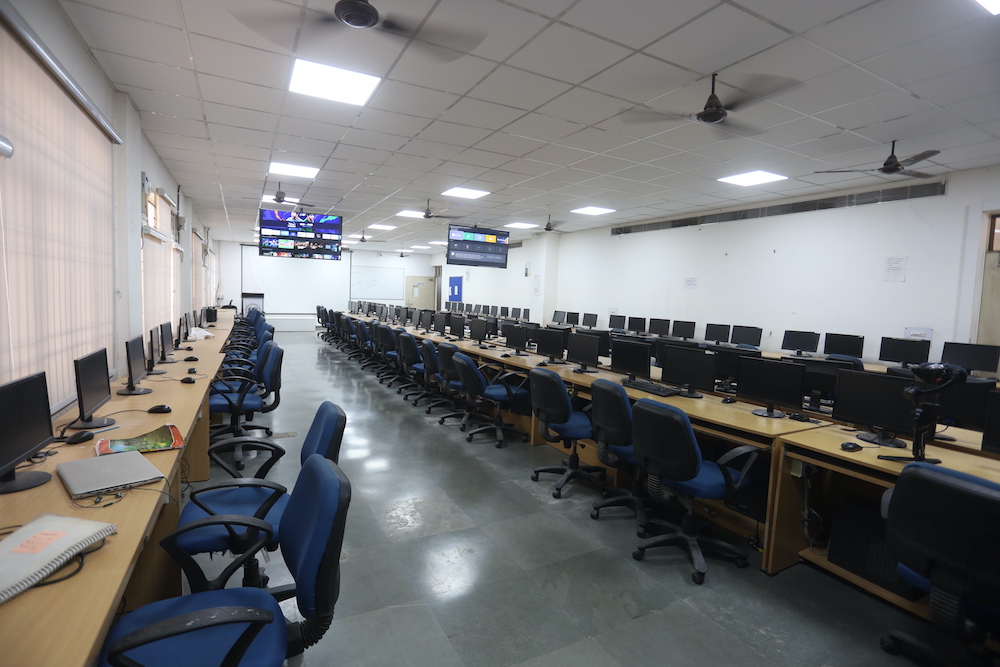
Image 15 – IT Labs for Management Students
Admission cutoffs in the top MBA colleges are influenced by several key factors.
Here are the most important criteria considered by MBA admission committees:
Entrance Exam Scores
High scores on standardized tests like the CAT (Common Admission Test), XAT (Xavier Aptitude Test), CMAT (Common Management Admission Test), MAT (Management Aptitude Test) and IIFT Entrance Exam are often crucial.
While pursuing an MBA degree in the top MBA colleges, it’s important to note that they typically have minimum score requirements, although these requirements may vary by institution.
Academic Background
While a strong undergraduate GPA is essential, some MBA courses also take into account the reputation of the applicant’s alma mater.
Additionally, completion of prerequisite courses in areas like economics, calculus, and statistics may be required or preferred.
Work Experience:
Most of the top MBA( master of business administration) programs prefer candidates with significant professional experience, typically ranging from two to seven years.
The quality, relevance, and progression of work experience are key considerations, with leadership roles often viewed favorably.
Essays and Personal Statements
Applicants are usually required to submit essays or personal statements detailing their career goals, motivations, and fit for the program.
Admissions committees assess candidates’ communication skills, self-awareness, and alignment with the program’s values and culture.
Letters of Recommendation:
Strong recommendations from supervisors, mentors, or colleagues can bolster an applicant’s profile.
These letters should provide insights into the candidate’s accomplishments, leadership potential, and character.
Interview Performance
Some MBA programs conduct interviews as part of the admissions process.
Interviews allow the admissions committee to evaluate candidates’ interpersonal skills, communication abilities, and suitability for the program.
Diversity
Admissions committees strive to assemble diverse cohorts, considering factors such as gender, ethnicity, nationality, industry background, and educational experiences.
Candidates who can contribute unique perspectives and enrich the learning environment may receive preferential consideration.
Extracurricular Involvement
Participation in extracurricular activities, community service, and leadership roles can demonstrate well-roundedness and leadership potential.
However, these activities are typically considered complementary to the academic and professional achievements.
Professional Certifications and Achievements
Relevant certifications, like CPA (Certified Public Accountant) or PMP (Project Management Professional), and notable achievements in the workplace can enhance an applicant’s candidacy and demonstrate expertise in specific areas.
Fit with Program Culture
Admissions committees assess whether applicants align with the values, teaching methodologies, and culture of the MBA program.
Demonstrating research into the program and articulating specific reasons for choosing it can strengthen an applicant’s case.
Understanding these key factors and tailoring one’s application to highlight strengths in each area can improve the likelihood of meeting MBA admissions cutoffs at top colleges.
What are the most popular MBA Course Entrance Exams in India?
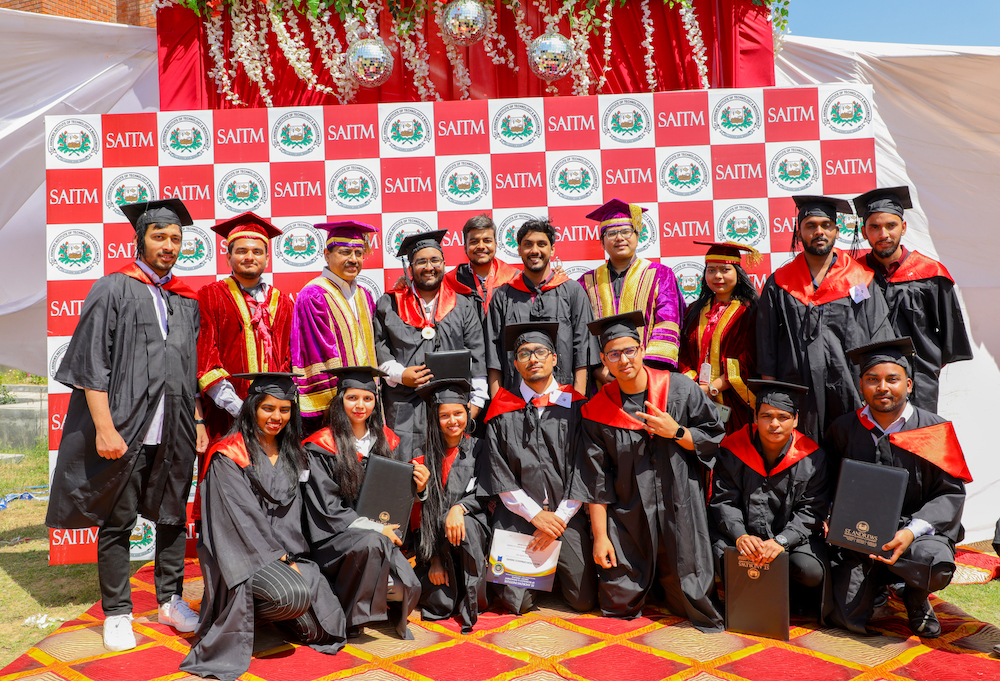
Image 16 – Convocation Ceremony at SAITM Campus
In India, different level MBA entrance exams are widely recognized for admission to MBA programs. Some of the most popular ones include:
Common Admission Test (CAT)
CAT is conducted by the Indian Institutes of Management (IIMs) and is the most widely recognized MBA entrance exams in India.
Many other prestigious management institutes also accept CAT scores for admission to their MBA programs.
Xavier Aptitude Test (XAT)
XAT is conducted by Xavier School of Management (XLRI), Jamshedpur, on behalf of the Xavier Association of Management Institutes (XAMI). It is accepted by numerous management institutes across India.
Management Aptitude Test (MAT)
MAT is conducted by the All India Management Association (AIMA) and is accepted by over 600 management institutes for admission to MBA(master of business administration) and allied programs.
Common Management Admission Test (CMAT)
CMAT is conducted by the National Testing Agency (NTA) and is accepted by various AICTE-approved institutions offering MBA courses and PGDM programs.
Indian Institute of Foreign Trade (IIFT) Entrance Exam
IIFT conducts its own entrance exam for admission to its MBA (International Business) program.
Direct MBA Course Admission

Image 17 – St. Andrews Institute of Technology and Management
The Direct MBA admission process, also referred to as management quota or sponsored admission, provides an alternative route to secure a place in MBA programs. It bypasses the need for undergoing the rigorous entrance exam process.
Securing a place in the MBA program through interview at St. Andrews Institute of Technology and Management, Gurugram.
While entrance exams like CAT, XAT, and others are common prerequisites for most MBA programs, direct admission typically involves by passing these exams through various means such as:
Management Quota MBA Admission:
Some institutes reserve a certain percentage of seats for direct admission, often at a higher fee structure.
These seats are usually filled based on criteria set by the institute, which may include academic performance, work experience, and personal interviews.
Sponsored Seats
Companies or organizations sometimes sponsor employees for MBA degree, securing their admission directly into the program.
This sponsorship may come with conditions such as a commitment to work for the sponsoring organization after completing the MBA.
Merit-Based MBA Admission
In some cases, candidates with exceptional academic records, significant work experience, or notable achievements may be offered direct admission based on merit without the need for an entrance exam.
Benefits of Direct MBA course Admission Process:
Saves Time and Effort
Skipping the entrance exam process can save applicants time and effort associated with exam preparation, registration, and appearing for the test.
Assured Admission
Direct MBA admission offers a guaranteed spot in the MBA program, eliminating the uncertainty of entrance exam results and cutoffs.
Flexibility
Candidates who may not perform well in standardized tests but possess strong academic or professional backgrounds can still secure admission through direct pathways.
Opportunity for Working Professionals
Direct MBA admission may be particularly advantageous for working professionals who cannot dedicate sufficient time to exam preparation due to job commitments.
Tailored Selection Criteria
Institutes offering direct admission often consider a wider range of criteria beyond exam scores, allowing for a more holistic evaluation of candidates’ suitability for the program.
MBA Course First Year: Key Subjects and Curriculum

Image 18 – Project Achievements
The first year of an MBA course typically lays the foundation for students to develop a broad understanding of business concepts and skills essential for managerial roles.
While courses and curriculum structures may vary among institutions, the first year of an MBA program typically involves encountering common subjects and an overview of the curriculum. This foundational year provides students with a comprehensive understanding of essential business principles and practices.
- Core Business Subjects
- Professional Development and Communication Skills
- Elective Courses or Specializations (Optional)
- Experiential Learning Opportunities
- Capstone Projects or Integrative Experiences
Core Business Subjects:
Financial Accounting
Covers basic accounting principles, financial statements, and analysis techniques.
Managerial Economics
Focuses on applying economic principles to business decision-making, including demand analysis, cost estimation, and pricing strategies.
Quantitative Methods
Includes topics like statistics, probability, operations research, and quantitative analysis tools used in business.
Organizational Behavior
Explores individual and group behavior in organizations, leadership styles, motivation, and organizational culture.
Marketing Management
Examines marketing strategies, market research, consumer behavior, product development, pricing, and promotion.
Operations Management
Covers topics related to production planning, process optimization, supplychain management, and quality management.
Corporate Finance
Discusses financial decision-making, capital budgeting, risk management, and valuation techniques.
Business Strategy
Provides an overview of strategic management concepts, competitive analysis, industry analysis, and strategic planning processes.
Professional Development and Communication Skills:
Business Communication: Focuses on written as well as oral communication skills, including business correspondence, presentations, and interpersonal communication.
Leadership Development: Explores leadership theories, styles, and practices, emphasizing self-awareness, emotional intelligence, and team dynamics.
Personal Development: Addresses topics such as time management, goal setting, networking, and career planning.
Elective Courses or Specializations (Optional):
Some of the MBA degree allow students to choose elective courses or specialize in specific areas like finance, marketing, entrepreneurship, human resources, or information technology.
Experiential Learning Opportunities:
Many MBA programs incorporate experiential learning components such as case studies, simulations, group projects, and internships to apply theoretical concepts to real-world business situations and enhance practical skills.
Capstone Projects or Integrative Experiences:
Towards the end of the first year or throughout the program, students may engage in capstone projects or integrative experiences that require them to synthesize and apply knowledge gained from various courses to solve complex business problems or develop strategic plans.
Overall, the first year of an MBA course provides students with a solid foundation in core business disciplines, essential skills, and opportunities for personal and the professional growth.
Explore MBA Course Specializations for Career Growth
Unlocking exciting MBA specializations can indeed significantly enhance one’s career prospects.
Here are some popular MBA specializations that can lead to diverse and rewarding career paths:
Marketing Management
Ideal for individuals interested in branding, advertising, market research, and product development.
Finance
Suited for those with a knack for numbers, finance prepares professionals for roles in investment banking, corporate finance, financial planning, and analysis.
Human Resource Management (HRM)
Focuses on managing people effectively within organizations, including talent acquisition, training, performance evaluation, and the organizational development.
Operations Management
Deals with optimizing processes and systems within organizations, including supply chain management, logistics, quality control, and project management.
Entrepreneurship
Perfect for aspiring business owners, this specialization covers topics such as venture capital, startup strategies, business planning, and innovation management.
Information Technology (IT) Management
Combines business acumen with IT expertise, preparing professionals for roles such as IT project management, systems analysis, and technology consulting.
International Business
Explores the complexities of conducting business across borders, including global marketing, international finance, and cross-cultural management.
Strategic Management
Focuses on formulating and implementing strategies to ensure organizational success, covering areas such as competitive analysis, strategic planning, and corporate governance.
Supply Chain Management
Addresses the efficient flow of goods and services from production to consumption, including inventory management, supplier relations, and demand forecasting.
Healthcare Management
Tailored for those interested in the healthcare industry, this specialization covers topics such as healthcare policy, hospital administration, and the healthcare marketing.
Choosing the right specialization depends on your interests, career goals, and the industry trends. Conduct thorough research, consider your strengths and preferences, and select a specialization that aligns with your aspirations for career advancement.
Top MBA Colleges by Location: Accepting CAT Scores
Here are some top MBA colleges in India, listed by location, that accept CAT scores for admission:
1. Indian Institutes of Management (IIMs)
There are 21 IIMs in various cities that accepts CAT scores for MBA admissions.
2. Indian Institutes of Technology (IITs)
Here are the list of some IITs which accepts CAT scores for MBA admissions:-
- DMS IIT Delhi
- SJMSoM IIT Bombay
- VGSoM IIT Kharagpur
- DoMS IIT Madras
- IME IIT Kanpur
- DoMS IIT Roorkee
- IIT-ISM Dhanbad
- IIT Jodhpur
3. Other Top MBA Colleges:
- St. Andrews Institute of Technology and Management
- Xavier School of Management (XLRI), Jamshedpur
- SP Jain Institute of Management and Research (SPJIMR), Mumbai
- National Institute of Industrial Engineering (NITIE), Mumbai
These are just a few examples of top MBA colleges in India that accept CAT scores.
Which is better, a full-time MBA or an online MBA Course?

Image 19 – Discussion About the Syllabus
Determining whether a full-time MBA or an online MBA course is better depends on various factors, including your personal preferences, career goals, lifestyle, and the current professional situation. Here are some considerations to help you decide:
Full-Time MBA:
Immersive Learning Experience
Full-time MBA programs typically offer a highly immersive learning experience with face-to-face interactions with faculty and classmates. This environment can foster networking opportunities, collaboration, and hands-on learning experiences.
Career Acceleration
Full-time MBA programs often provide intensive career development resources, such as internships, corporate projects, and networking events, which can help accelerate your career progression.
Campus Life and Networking
Being on campus allows you to engage in extracurricular activities, join clubs, attend events, and build a strong network of peers, alumni, and industry professionals.
Structured Schedule
Full-time MBA programs have a structured schedule, which may be beneficial for some students who thrive in a regimented learning environment.
Online MBA:
Flexibility
Online MBA programs offer flexibility in terms of when and where you study, allowing you to balance your studies with work, family, and other commitments. This flexibility is particularly beneficial for working professionals.
Cost-Effectiveness
Online MBA programs may be more cost-effective than full-time programs, as they often have lower tuition fees and eliminate the need for relocation or commuting expenses.
Work-Life-Study Balance
If you’re already working full-time or have other commitments, an online MBA allows you to continue working while pursuing your degree, minimizing disruptions to your career and personal life.
Global Reach
Online MBA programs often attract a diverse cohort of students from around the world, providing opportunities for cross-cultural collaboration and networking.
Top MBA courses Colleges in India: Offering High Packages at Low Fees

Image 20 – Celebration after Placement Drive
dentifying the top MBA colleges in India that offer high packages at low fees requires careful research and consideration of various factors, including placement statistics, fees, reputation, and return on investment (ROI).
While some colleges may offer attractive placement packages at relatively lower fees, it’s essential to evaluate the overall quality of education, faculty, infrastructure, and placement support.
Here are a few MBA colleges in India known for offering good placement packages at comparatively lower fees:
Jamnalal Bajaj Institute of Management Studies (JBIMS), Mumbai
The JBIMS is one of the premier management institutes in India known for its low fees and high placement packages. The institute, affiliated with the University of Mumbai, has a strong industry connect and consistently achieves impressive placement records.
St. Andrews Institute of Technology and Management (SAITM),Gurugram
St. Andrews Institute of Technology and Management (SAITM) in Gurugram is renowned for its excellent placement record and high salary packages. Graduates frequently land prestigious positions in top multinational companies, thanks to the institute’s strong industry connections and dedicated placement cell that prepares students for successful careers.
National Institute of Industrial Engineering (NITIE), Mumbai
The NITIE is renowned for its specialization in operations and supply chain management. The institute offers affordable MBA programs with a focus on industrial engineering and management. NITIE’s strong industry partnerships and research-oriented approach contribute to high placement packages.
Department of Management Studies, Indian Institute of Technology (IIT) Delhi
The IIT Delhi’s Department of Management Studies offers MBA programs with a focus on technology management and innovation. The institute provides quality education at relatively lower fees compared to standalone business schools, and its strong industry ties ensure lucrative placement opportunities.
Explore Distance MBA Courses: Flexibility Meets Quality Education

Image 21 – Highest Salary Package
Distance MBA courses offer the perfect blend of flexibility and quality education, making them an attractive option for working professionals, entrepreneurs, and individuals with other commitments.
Here are some key benefits and considerations when exploring distance MBA courses:
1. Flexibility
Distance MBA programs allow students to study at their own pace and convenience, making it easier to balance studies with work, family, and other responsibilities. With asynchronous learning options, students can access course materials, lectures, and assignments anytime, anywhere.
2. Accessibility
Distance MBA programs eliminate the need for relocation or commuting, making higher education accessible to individuals living in remote areas or unable to attend traditional on-campus classes due to various constraints.
3. Cost-Effectiveness
Distance MBA programs often have lower tuition fees compared to full-time on-campus programs.
Additionally, students save on expenses related to commuting, accommodation, and relocation, resulting in a more cost-effective education option.
4. Diverse Learning Environment
Distance MBA programs attract students from diverse backgrounds, professions, and locations, enriching the learning experience through diverse perspectives, discussions, and collaborations.
5. Industry-Relevant Curriculum
Many distance MBA programs are designed in collaboration with industry experts to ensure that the curriculum remains relevant and up-to-date with the latest industry trends, practices, and technologies.
6. Personalized Learning Experience
Distance MBA programs offer personalized learning experiences, allowing students to focus on areas of interest, customize their study schedules, and engage with course materials in ways that suit their learning styles.
7. Career Advancement
A distance MBA degree can enhance career prospects, open up new opportunities for advancement, and increase earning potential without interrupting professional commitments.
8. Accreditation and Recognition
It’s essential to choose a distance MBA course offered by a reputable institution with proper accreditation and recognition to ensure the quality and value of the degree.
9. Support Services
Look for distance MBA programs that provide comprehensive student support services, including academic advising, counseling, technical support, and access to online libraries and resources.
10. Networking Opportunitie
While distance MBA programs may not offer face-to-face interactions like on-campus programs, they often facilitate virtual networking events, discussion forums, and alumni networks to connect students with peers, faculty, and industry professionals.
Overall, distance MBA courses offer a flexible and convenient pathway to obtaining a quality business education while balancing other commitments.
It’s essential to research and carefully evaluate different programs to find the one that best aligns with your goals, preferences, and career aspirations.
Should only individuals interested in leadership roles pursue an MBA course?
No, pursuing an MBA course is not limited to individuals interested in leadership roles only.
While an MBA can certainly provide valuable skills and knowledge relevant to leadership positions, the degree offers a broad range of benefits that extend beyond leadership roles.
Here are a few reasons why individuals with various career goals and aspirations may choose to pursue an MBA course:
Career Switching
Many individuals pursue an MBA to switch careers or industries. The diverse curriculum of an MBA course covers various business functions, including finance, marketing, operations, human resources, and entrepreneurship, providing a solid foundation for transitioning into different roles or sectors.
Skill Enhancement
An MBA equips students with a diverse set of skills, including analytical thinking, problem-solving, decision-making, communication, and teamwork, which are valuable in a broad range of professions and roles, not just leadership positions.
Entrepreneurship
Individuals interested in starting their own business or venture often pursue an MBA to gain the knowledge, skills, and networks necessary to succeed as entrepreneurs. The MBA programs often offer courses and resources specifically tailored to aspiring entrepreneurs.
Career Advancement
While an MBA can certainly help individuals advance into leadership roles, it can also accelerate career advancement in other capacities, such as project management, consulting, business development, or specialist roles within specific functional areas.
Global Opportunities
An MBA degree can open up global career opportunities by providing a broader perspective on business and exposure to international markets, cultures, and practices.
Networking
MBA programs offer valuable networking opportunities with classmates, alumni, faculty, and industry professionals, which can lead to job opportunities, mentorship, partnerships, and collaborations regardless of one’s specific career goals.
Personal Development
Pursuing an MBA can be a transformative personal development journey, fostering self-awareness, confidence, resilience, and adaptability, which are valuable qualities in any professional context.
What are the admission requirements for MBA Course in India?
The MBA admissions requirements in India can vary depending on the institution and the specific program.
However, there are some common criteria and components that many MBA programs consider during the admissions process.
Here are the typical requirements for MBA admissions in India:
Bachelor’s Degree
Most MBA courses require candidates to hold a bachelor’s degree from a recognized university or institution.
The degree can be in any discipline, although some programs may prefer candidates with a background in business, management, or related fields.
Entrance Exam Score
Many MBA courses in India require candidates to take one of the standardized entrance exams such as the CAT (Common Admission Test), XAT (Xavier Aptitude Test), CMAT (Common Management Admission Test), MAT (Management Aptitude Test) and IIFT Entrance Exam or other state-level entrance exams in India.
The scores obtained in these exams are an essential component of the admissions process and often have a significant weightage.
Work Experience–
While not always mandatory, some MBA courses prefer candidates with prior work experience, especially for executive MBA courses or those targeting mid-career professionals.
The required years of work experience can vary depending on the program, but typically range from 1 to 5 years.
Academic Performance
In addition to holding a bachelor’s degree, MBA courses may consider the candidate’s academic performance, including undergraduate grades or equivalent academic scores. Some programs may have a minimum GPA requirement for eligibility.
Letters of Recommendation–
Many MBA courses require candidates to submit letters of recommendation from academic or professional references who can attest to the candidate’s qualifications, skills, and suitability for the program.
Statement of Purpose (SOP) or Essays
Applicants are often required to submit a statement of purpose or essays outlining their career goals, motivations for pursuing an MBA, and how the program aligns with their aspirations.
These essays provide an opportunity for candidates to showcase their communication skills, self-awareness, and fit with the program.
Group Discussion (GD) and Personal Interview (PI)
Some of the MBA courses conduct group discussions and personal interviews as part of the admissions process to assess candidates’ communication skills, interpersonal skills, leadership potential, and fit with the program.
Other Requirements
Depending on the institution and program, additional requirements such as a resume or curriculum vitae (CV), language proficiency tests (such as TOEFL or IELTS for international candidates), and specific application forms may also be necessary.
It’s important for prospective MBA applicants to carefully review the admissions requirements and deadlines for each program they are interested in, as these can vary significantly.
Additionally, candidates should prepare thoroughly for entrance exams, essays, interviews, and other components of the application process to maximize their chances of admission.
Top Recruiters for MBA Courses: Leading Companies Seeking Talent
The top recruiters for MBA graduates often include prestigious consulting firms, multinational corporations, financial institutions, technology giants, and fast-growing startups.
Here are some leading companies that actively seek MBA talent:
- McKinsey & Company
- The Boston Consulting Group (BCG)
- Bain & Company
- Deloitte Consulting
- PricewaterhouseCoopers (PwC)
- EY (Ernst & Young)
- KPMG
- Amazon
- Apple
- Microsoft
- Uber
- J.P. Morgan Chase & Co.
- Goldman Sachs
- Morgan Stanley
- Barclays
- Citigroup
- Procter & Gamble (P&G)
- Unilever
These companies are known for their robust MBA recruitment programs, offering challenging roles, competitive compensation, and opportunities for career advancement.
MBA Course in India or Abroad: Which is more beneficial?
Deciding between pursuing an MBA in India or abroad depends on various factors including your career goals, personal preferences, financial considerations, and the reputation of the institutions you are considering.
Here are some factors to consider when making this decision:
Career Goals
Consider where you want to work after completing your MBA. If you plan to build your career in India, a local MBA course may provide better networking opportunities and connections with local recruiters.
However, if you aspire to work in an international setting or for a multinational corporation, an MBA from abroad may offer broader exposure and access to global career opportunities.
Reputation and Rankings
Research the reputation and rankings of the MBA courses both in India and abroad. While India boasts several prestigious business schools such as the Indian Institutes of Management (IIMs) and Indian School of Business (ISB), some international business schools are globally renowned and may offer better brand recognition and networking opportunities.
Curriculum and Specializations
Evaluate the curriculum and specializations offered by MBA courses to ensure they align with your career goals and interests. Some programs may offer specialized tracks or concentrations that are particularly relevant to your desired industry or field.
International Exposure
Studying abroad can provide valuable international exposure, cultural diversity, and a global perspective, which are increasingly important in today’s interconnected business world.
Cost and Financial Considerations
Compare the costs of pursuing MBA in India versus abroad, including tuition fees, living expenses, and potential lost income during the study period. Keep in mind that studying abroad may be more expensive due to higher tuition fees and living costs, although scholarships, grants, and financial aid options may be available.
Networking Opportunities
Consider the networking opportunities available in MBA courses, both in India and abroad. Alumni networks, industry connections, internships, and career services can play a significant role in helping you secure internships and job opportunities post-MBA.
Explore India’s Top Private MBA Colleges for Premier Education
India is home to several top private MBA colleges that offer premier education and are highly sought after by students aspiring to pursue management studies.
Here are some of India’s top private MBA colleges known for their academic excellence, industry connections, and placement records:
- St Andrews Institute of Technology & Management (SAITM), Gurgaon, Delhi NCR
- Maharishi Dayanand University
- University of Delhi, Delhi
- Guru Gobind Singh Indraprastha University (GGSIPU), Delhi
- Pune University, Pune
- Indian School of Business (ISB), Hyderabad and Mohali
- XLRI – Xavier School of Management, Jamshedpur
- SP Jain Institute of Management and Research (SPJIMR), Mumbai
- Narsee Monjee Institute of Management Studies (NMIMS), Mumbai
- Xavier Institute of Management, Bhubaneswar (XIMB)
- T.A. Pai Management Institute (TAPMI), Manipal
- Institute of Rural Management Anand (IRMA), Gujarat
- Loyola Institute of Business Administration (LIBA), ChennaiThese private MBA colleges are known for their rigorous academic curriculum, experienced faculty, state-of-the-art infrastructure, and strong industry linkages.
Top MBA colleges offer diverse, high-profile career opportunities
The top MBA colleges like IIMs (Indian Institutes of Management), ISB (Indian School of Business), XLRI (Xavier School of Management), and FMS (Faculty of Management Studies) offer a diverse range of job profiles across various industries and functions.
Some of the common job profiles offered to MBA graduates from these institutions include:
Management Consultant
Advising organizations on strategic decisions, process improvement, and problem-solving.
Investment Banker
Managing mergers and acquisitions, raising capital, and providing financial advisory services.
Marketing Manager
Developing marketing strategies, launching campaigns, and managing brand initiatives.
Product Manager
Overseeing the development and launch of products, conducting market research, and driving product innovation.
Business Development Manager
Identifying new business opportunities, negotiating partnerships, and expanding market reach.
Financial Analyst
Analyzing financial data, preparing forecasts, and providing insights to support investment decisions.

Image 22 – Financial Analyst
Operations Manager
Optimizing processes, managing supply chain operations, and enhancing operational efficiency.
Human Resources Manager
Recruiting talent, implementing HR policies, and fostering employee development.
Strategy Analyst/Manager
Formulating corporate strategies, conducting industry analysis, and evaluating business opportunities.
Data Analyst/Manager
Analyzing data to derive insights, making data-driven decisions, and implementing data strategies.
Entrepreneur/Startup Founder
Establishing and scaling new ventures, managing business operations, and driving growth.
Retail Manager
Overseeing retail operations, managing inventory, and enhancing customer experience.
Supply Chain Manager
Planning and managing the flow of goods and services, optimizing logistics, and minimizing costs.

Image 23 – Supply Chain Manager
Project Manager
Leading project teams, managing timelines and budgets, and ensuring project success.

Image 24 – Project Manager
Corporate Finance Manager
Managing corporate finance activities such as budgeting, forecasting, and capital allocation.

Image 25 – Corporate Finance Manager
MBA Course: Average Salary Insights in India
The average MBA salary in India can vary depending on factors such as the reputation of the business school, specialization, work experience, and location.
The average starting salary for MBA graduates in India ranged from INR 6 lakhs to INR 25 lakhs per annum.
Top business schools in India, such as the Indian Institutes of Management (IIMs), often command higher starting salaries for their graduates, with some placements reaching upwards of INR 25 lakhs or more per annum.
Specializations like finance, consulting, and technology tend to offer higher salaries compared to other fields.
However, it’s essential to note that these figures can fluctuate over time due to market conditions, economic factors, and trends in various industries.
Executive MBA Course
An Executive MBA (EMBA) program is designed for experienced professionals who are typically already working in managerial or leadership positions and seek to enhance their business knowledge and skills without taking a break from their careers.
Here are some key features and benefits of an Executive MBA course:
Target Audience
EMBA programs are tailored for mid-career professionals with substantial job experience, usually ranging from 5 to 15 years or more. Participants are often in their 30s or 40s and hold managerial or executive roles in their organizations.
Curriculum
The curriculum of an EMBA degree covers advanced business topics such as strategic management, leadership, finance, marketing, operations, and organizational behavior. The coursework is often designed to be immediately applicable to participants’ professional roles.
Flexible Format
EMBA programs typically offer a flexible schedule to accommodate the busy lifestyles of working professionals. Classes may be held on weekends, evenings, or in intensive modules, allowing participants to balance their work, personal, and academic commitments.
Networking Opportunities
EMBA programs provide excellent networking opportunities with fellow experienced professionals from diverse industries and backgrounds. The cohort-based learning model fosters collaboration, peer-to-peer learning, and the exchange of ideas and best practices.
Global Perspective
Many EMBA programs offer opportunities for international exposure through study trips, global residencies, or collaboration with partner institutions abroad.
Career Advancement
Completing an EMBA can enhance career prospects by providing participants with advanced management skills, strategic thinking abilities, and a broader perspective on business challenges.
Employer Support
Some organizations sponsor their employees to enroll in EMBA courses as part of their professional development initiatives. Employers recognize the value of investing in their talent pool and benefit from the enhanced skills and leadership capabilities of their executives.
Executive Coaching and Mentorship
Many EMBA courses offer executive coaching and mentorship services to support participants in their personal and professional growth.
Overall, an Executive MBA degree is a significant investment of time, effort, and resources, but it can yield substantial returns in terms of career advancement, personal growth, and professional fulfillment for experienced professionals looking to take their careers to the next level.
How much does professional experience weigh in MBA courses admission process?
Professional experience carries significant weight in the MBA admission process, particularly for programs targeting candidates with several years of work background, such as Executive MBA (EMBA) programs or part-time MBA courses.
Here’s how professional experience typically factors into the admission process:
Relevance
Admissions committees assess the relevance and quality of an applicant’s professional experience. They look for candidates who have demonstrated leadership potential, managerial skills, and a track record of professional achievements that align with the goals of an MBA degree.
Diversity of Experience
Admissions committees value diversity of experience among the MBA candidates. They seek applicants from a wide range of industries, functions, and backgrounds, as this diversity enriches classroom discussions and enhances the learning experience for all participants.
Contributions to Class Discussions
Candidates with substantial professional experience can contribute valuable insights and perspectives to class discussions, drawing from their real-world experiences and challenging their peers to think critically about business issues.
Networking Opportunities
The MBA courses recognize the importance of networking and peer learning. Candidates with extensive professional experience bring valuable networks of contacts, industry knowledge, and business connections that can benefit their classmates and enhance the overall learning environment.
Career Goals and Objectives
Admissions committees evaluate how an applicant’s professional experience aligns with their career goals and objectives. They look for candidates who have a clear vision for their future career trajectory and can articulate how an MBA from their program will help them achieve their aspirations.
Letters of Recommendation:-
Letters of recommendation from supervisors or colleagues can provide additional insights into an applicant’s professional accomplishments, leadership potential, and interpersonal skills.
Interview Performance
During the admissions interview, candidates may be asked to discuss their professional experiences in more detail, including challenges they’ve faced, decisions they’ve made, and lessons they’ve learned. The interview allows admissions committees to assess candidates’ communication skills, self-awareness, and suitability for the program.
Which MBA colleges in India offer the best ROI (Return on Investments)?
Identifying the top MBA colleges in India with the best Return on Investment (ROI) requires evaluating factors like tuition fees, placement records, average salaries, and other associated expenses of the program.
Some of the MBA colleges in India known for providing excellent ROI include:

Image 26 – Inside view of SAITM Campus
Indian Institutes of Management (IIMs)
IIMs are prestigious institutions known for their rigorous academic curriculum and strong industry connections.
Although the fees for these programs may be relatively high, graduates frequently secure lucrative salary packages, leading to a favorable return on investment (ROI).
Some of the top IIMs include Ahmedabad Indian Institute of Management (IIM), Bangalore Indian Institute of Management (IIM), Calcutta Indian Institute of Management (IIM), and others.
St. Andrews Institute of Technology and Management (SAITM), Gurugram
SAITM Gurugram stands out for its exceptional academic curriculum, industry-aligned training, and strong placement record. This inclusion alongside other top-tier institutions highlights the comprehensive education and valuable career prospects available to MBA students in India, making it a wise investment for those looking to advance their careers in the business world.
Indian School of Business (ISB), Hyderabad and Mohali
ISB is a premier business school in India known for its one-year MBA course.
While the tuition fees are relatively high, the program’s shorter duration and strong placement record often result in an attractive ROI for graduates.
XLRI – Xavier School of Management, Jamshedpur
XLRI offers various MBA courses known for their rigorous curriculum and excellent placement opportunities.
The institution’s focus on ethical leadership and social responsibility resonates well with recruiters, leading to high salary packages for graduates and a favorable ROI.
SP Jain Institute of Management and Research (SPJIMR), Mumbai
SPJIMR is known for its innovative pedagogy and industry-focused curriculum.
Students enjoy a favorable return on investment thanks to the institute’s modest tuition fees and outstanding placement outcomes.
Indian Institute of Technology (IIT) Business Schools
A number of IITs in India provide MBA programmes with great placement rates and competitive tuition that offer a good return on investment(ROI). IIT Bombay, IIT Delhi, and IIT Kharagpur are among the top choices for MBA aspirants seeking excellent ROI.
FAQs Related to MBA Course
Operations Manager
An Operations Manager oversees the day-to-day operations of a business or organization, ensuring efficiency, productivity, and quality standards are met.
They manage resources, personnel, and processes to optimize operations and achieve strategic objectives, playing a key role in driving business success.
Product Manager
A Product Manager is responsible for the development, strategy, and performance of a product or product line throughout its lifecycle.
They collaborate with cross-functional teams to define product features, prioritize development efforts, and drive product success in alignment with business goals and market demands.
Multimedia Specialist
A Multimedia Specialist creates and produces multimedia content across various platforms, including graphics, audio, video, and interactive media.
They utilize their expertise in design, editing, and technology to communicate messages effectively, engage audiences, and enhance the visual and interactive aspects of digital content.
What is MBA course details?
An MBA course is a two-year program encompassing core subjects like Financial Accounting, Marketing Management, Operations Management, and Strategic Management.
Experiential learning through internships and consulting projects applies theory to real-world scenarios. Some programs offer concentrations for deeper study.
A capstone project or thesis may serve as a culmination. Admission typically requires a bachelor’s degree, standardized test scores, letters of recommendation, and work history. Graduates earn an MBA degree, preparing them for leadership roles in diverse industries.
Which course is best in MBA?
The “best” MBA course depends on individual career goals and interests. Popular specializations include Finance for roles in investment banking or corporate finance, Marketing for careers in brand management or advertising, and Entrepreneurship for those interested in starting their own ventures. Choose based on personal aspirations and market demand.
What is qualification for MBA?
Qualifications for the MBA course typically include a bachelor’s degree from an accredited institution, standardized test scores (e.g., GMAT or GRE), letters of recommendation, relevant work background (in some cases), and a statement of purpose or personal essay.
Is MBA a good career?
Yes, the MBA course can lead to a rewarding career path by enhancing leadership skills, expanding business knowledge, and increasing earning potential.
It opens doors to diverse opportunities in various industries, making it a valuable investment for many professionals.
Which is best course in MBA?
The “best” course in the MBA depends on individual career goals and industry demand. Popular specializations include Finance, Marketing, and Entrepreneurship.
Marketing focuses on brand management and advertising, Finance offers opportunities in investment banking and corporate finance, while Entrepreneurship suits those interested in starting or managing their own ventures.
How many courses are in MBA?
The number of courses in the MBA degree varies depending on the institution and its curriculum structure.
Typically, an MBA degree includes a mix of core courses covering fundamental business disciplines, elective courses allowing specialization, and possibly additional experiential learning opportunities, culminating in earning the MBA degree.
Is MBA a 2 year course?
Yes, Master of Business Administration (MBA) programs are typically designed to be completed over two years, particularly for students enrolled in standard full-time courses.
This duration allows for a comprehensive curriculum covering core subjects, elective courses, and experiential learning opportunities, culminating in earning the MBA degree.
Which type of MBA has highest salary?
The MBA specializations that often lead to higher salaries include Finance, Consulting, and Technology Management. Roles in investment banking, private equity, or hedge funds tend to offer lucrative compensation in finance.
Consulting firms are known for offering attractive salaries, especially to individuals holding MBA degrees. Moreover, positions in technology management within sectors such as IT or biotechnology often come with significant salary packages.
What courses are in MBA?
In an MBA program, students typically start with core courses like Financial Accounting, then move on to Marketing Management, followed by Operations Management. As the curriculum progresses, courses such as Organizational Behavior and Strategic Management are introduced.
Additionally, students explore Managerial Economics and delve into subjects like Business Ethics and Finance. The course also includes an MBA in Business Analytics, and further down the line, elective courses are offered, allowing students to specialize in areas such as Finance, Marketing, or Entrepreneurship.
Can I complete MBA after 12th?
Typically, MBA is master of business applications course requires a bachelor’s degree as a prerequisite.
Certain schools provide integrated MBA programs that allow students to start right after finishing their 12th grade, blending undergraduate studies with MBA coursework.
What course is MBA for?
An MBA (Master of Business Administration) is for individuals seeking to enhance their business acumen, leadership skills, and career prospects in various industries.
It prepares students for management and leadership roles.
Which MBA course is best?
The best MBA course for you is one that aligns with your career goals, offers a comprehensive curriculum, has a strong reputation and accreditation, and provides ample opportunities for networking and career advancement.
What subject is needed for MBA?
Although MBA programs do not mandate a particular subject background, applicants often gain an advantage from having a solid base in business-related areas, including accounting, economics, mathematics, and management.
Moreover, skills in communication, critical thinking, problem-solving, and quantitative analysis are crucial for thriving in MBA courses and succeeding in future roles as business leaders.
Is MBA a 4 year course?
No, the MBA is master of business applications course typically last for two years in traditional full-time formats.
While the length of part-time or executive MBA programs can vary, the typical full-time MBA course usually spans two years.
What is MBA full details?
An MBA is a graduate-level degree program that provides a comprehensive understanding of business principles and management practices.
The program includes basic courses in finance, marketing, operations and many options for extra classes and hands-on learning.
An MBA course prepares individuals for leadership roles in various industries and enhances career prospects.
What is MBA full information?
The full form of MBA is master of business applications. It is a graduate-level degree program that focuses on developing skills in business management, leadership, and strategic decision-making.
“MBA course is one of the most popular postgraduate-level degrees for individuals seeking to advance their careers in business administration and management.”
The course covers important topics like finance, marketing, how businesses operate, and how people work together in companies.
What are the most popular MBA specializations?
An MBA specialization refers to a focused area of study within the broader MBA degree program.
These MBA courses often offer various specializations or concentrations that allow students to tailor their education to specific career goals or interests.
- Marketing: Branding, market research, product development.
- Finance: Investment banking, corporate finance, financial analysis.
- HRM: Talent management, training, organizational development.
- Operations: Process optimization, supply chain management.
- Entrepreneurship: Startup strategies, business innovation.
- IT Management: Technology integration, project management.
- International Business: Global marketing, cross-cultural management.
- Strategic Management: Competitive analysis, strategic planning.
- Supply Chain Management: Logistics, inventory management.
- Healthcare Management: Healthcare policy, hospital administration.





